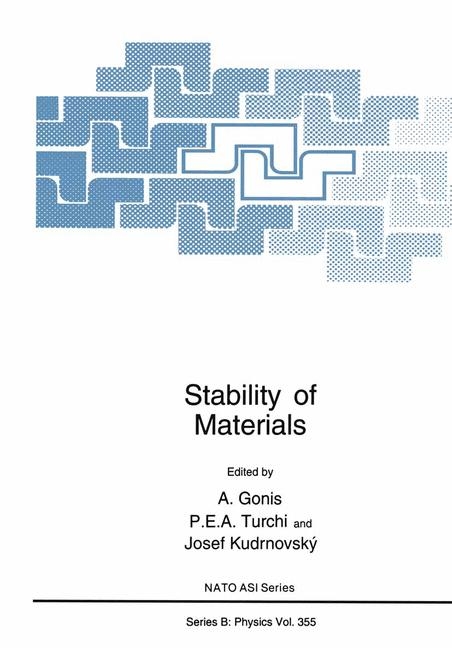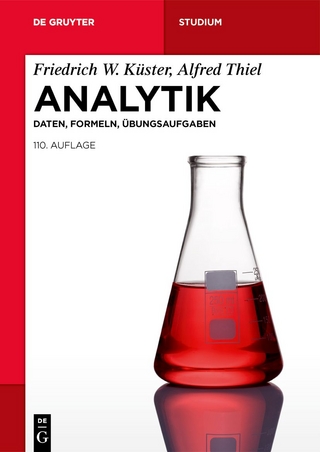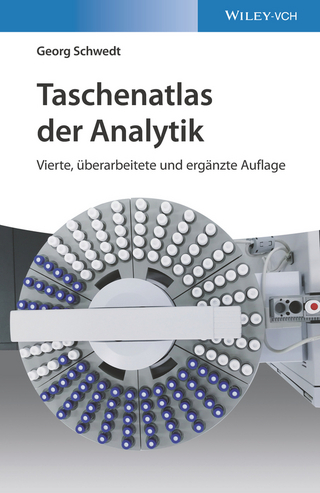
Stability of Materials
Kluwer Academic/Plenum Publishers (Verlag)
978-0-306-45311-3 (ISBN)
- Titel ist leider vergriffen;
keine Neuauflage - Artikel merken
Engineering materials with desirable physical and technological properties requires understanding and predictive capability of materials behavior under varying external conditions, such as temperature and pressure. This immediately brings one face to face with the fundamental difficulty of establishing a connection between materials behavior at a microscopic level, where understanding is to be sought, and macroscopic behavior which needs to be predicted. Bridging the corresponding gap in length scales that separates the ends of this spectrum has been a goal intensely pursued by theoretical physicists, experimentalists, and metallurgists alike. Traditionally, the search for methods to bridge the length scale gap and to gain the needed predictive capability of materials properties has been conducted largely on a trial and error basis, guided by the skill of the metallurgist, large volumes of experimental data, and often ad hoc semi phenomenological models. This situation has persisted almost to this day, and it is only recently that significant changes have begun to take place. These changes have been brought about by a number of developments, some of long standing, others of more recent vintage.
Numerical Simulations and Phenomenology: Invited Papers: Monte Carlo Simulations of Surfaces and Interfaces in Materials; K. Binder. Continuum Diffuse-Interface Model for Modeling Microstructural Stability; L.Q. Chen, et al. Atomistic Studies of the Structure of Grain Boundaries and Dislocations; V. Vitek. Dislocation Patterns: Experiment, Theory and Simulation; L.P. Kubin. Contributed Papers: Continuous Phase Transitions at Surfaces of CuAu Alloy Models: A Monte Carlo Study of Surface Induced Order and Disorder; W. Schweika, et al. Surface Ordering and Surface Segregation in Binary Alloys; F. Schmid. Relaxed Monte Carlo Simulations On Au-Ni Alloy; R. Tétot, A. Finel. Continuous Monte Carlo Simulation of Surfaces and of Interfaces of Mismatched Crystals; J. Baker, P.A. Lindgard. Electronic Structure Theories: Invited Papers: Selfconsistent Green's Function Method for Random Surfaces and Interfaces; J. Kudrnovsky, et al. Electronic Structure and Physical Properties; I. Mertig. Classical and First Principles Molecular Dynamics Simulations in Material Science: Application to Structural and Dynamical Properties of Free and Supported Clusters; C. Massobrio, P. Blandin. Contributed Papers: New Tight-binding Methodology for Calculating Total Energy of Solids; D.A. Papaconstantopoulos, M.J. Mehl. Contributions to the Total Energy of Random Alloys; J.S. Faulkner, et al. Competing Mechanisms for Ordering Tendencies in Fcc CuAuZn and Fcc AuFe Alloys; D.D. Johnson, et al. A Novel Full Potential Contracted Plane Wave; (FCPW) Method for Electronic Structure Calculations on Complex Materials; L. Fritsche, et al. EffectiveIsingHamiltonian for Surfaces of Metallic Alloys; V. Drchal, et al. Invited Papers: TEM Characterization of Structural Defects; G.V. Tendeloo. Dislocations and the Plasticity of Crystals; P. Veyssière. Mechanical Properties of TiAl and TiAlbase Alloys; K. Koshida, et al. Structureproperty Relationship of Metal-Ceramic Interfaces; J.Th.D. De Hosson, et al. Contributed Papers: Distribution of Dislocations and Dislocation Widths; V. Paidar. An Atomistic Study of The Image Force on a Dislocation in a Bimaterial; P. Beauchamp, et al. Slip Induced Configurational Energy Change in Binary Alloys B. Schönfeld, P. Schwander. Cyclic Creep Deformation Characteristics of Single Crystal of Nickel Base Superalloy CMSX3 J. Zrnik, et al. Index.
| Reihe/Serie | NATO Science Series: B ; 355 |
|---|---|
| Zusatzinfo | 742 p. |
| Verlagsort | New York |
| Sprache | englisch |
| Gewicht | 1520 g |
| Themenwelt | Naturwissenschaften ► Chemie ► Analytische Chemie |
| Naturwissenschaften ► Physik / Astronomie ► Atom- / Kern- / Molekularphysik | |
| Naturwissenschaften ► Physik / Astronomie ► Festkörperphysik | |
| Technik ► Maschinenbau | |
| ISBN-10 | 0-306-45311-8 / 0306453118 |
| ISBN-13 | 978-0-306-45311-3 / 9780306453113 |
| Zustand | Neuware |
| Haben Sie eine Frage zum Produkt? |
aus dem Bereich


